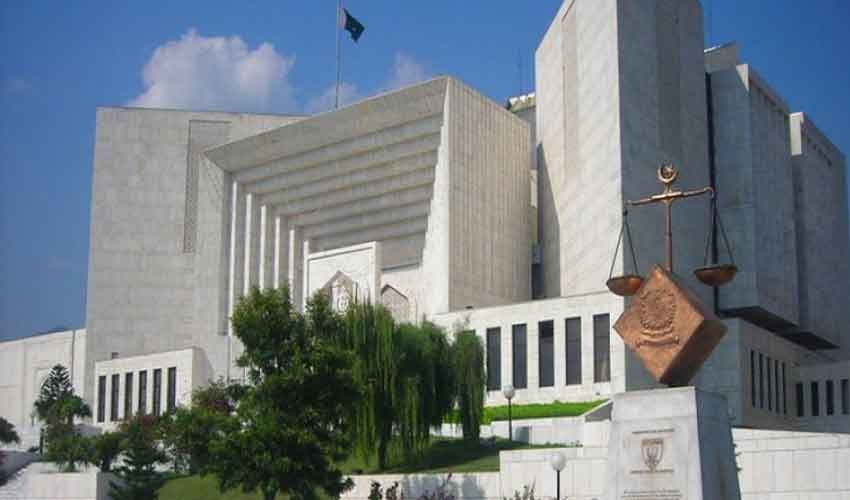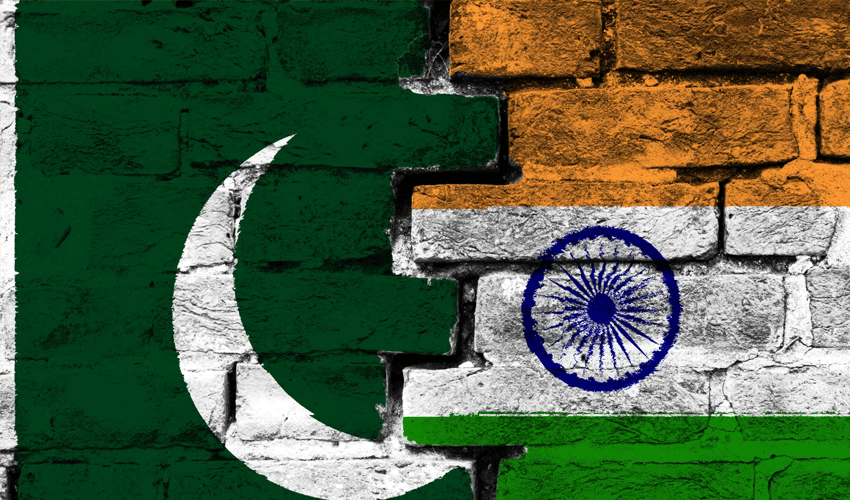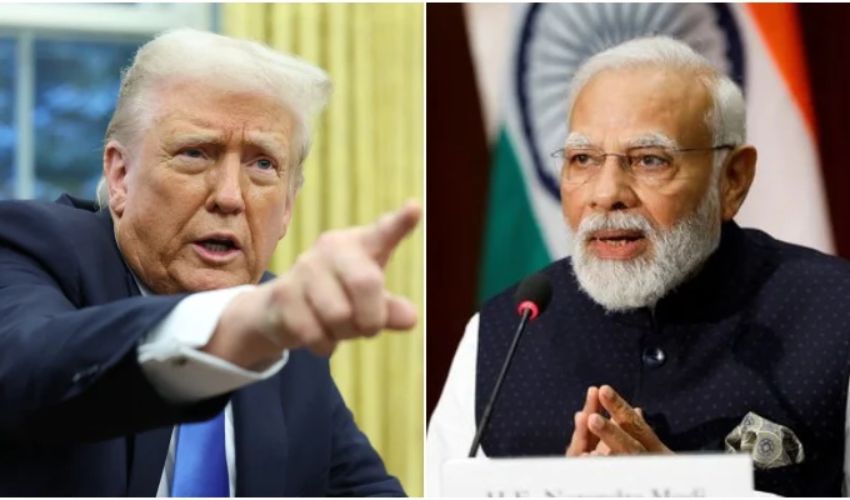The Supreme Court has set aside the Peshawar High Court and election commission verdicts and declared the Pakistan Tehreek-e-Insaf (PTI) eligible for reserved seats in the case of the Sunni Ittehad Council.
The 8-5 majority verdict was announced by Chief Justice of Pakistan Qazi Faez Isa, who is heading a 13-member full court of the Supreme Court. The proceedings are being broadcast live. All the judges have recognized the PTI as a legal and competent party.
The Supreme Court declared that the deprivation of an election symbol does not terminate the right of a party to participate in elections. The PTI was and is a political party. The election commission submitted the data of 80 candidates to the Supreme Court.
It further said that the 39 candidates whose affiliation was shown with the PTI will remain the successful candidates of the PTI. The remaining 41 candidates can also submit their affidavits within 15 days that they were candidates of the same party. The PTI has been ordered to submit its list for reserved seats within 15 days.
Also Read: Sunni Ittehad Council reserved seats case - a timeline
The order stated that if the election commission and the PTI want an explanation, they can approach the court. The Supreme Court declared the election on additional reserved seats null and void, adding that the PTI will get reserved seats in the National and provincial assemblies.
It ordered the election commission to issue notifications of reserved seats as per the PTI's list. The decision will be applied to Punjab, Khyber Pakhtunkhwa and Sindh Assembly as well, the Supreme Court ruled.
Dissenting notes
Later, Justice Yahya Afridi disagreed with the majority decision and wrote his own separate decision. He said it was not right to declare independent those who submitted themselves as PTI candidates. These members could not be declared as members of any other party, Justice Afridi wrote.
The chief justice also read out the dissenting note of Justice Jamal Mandokhel, according to which the Sunni Ittehad Council did not contest elections nor did it submit the list of reserved seats, hence it was not eligible for the seats. No candidate said they went to the Sunni Ittehad Council because of some confusion, it added.
Also Read: PTI reacts to SIC reserved seats verdict
The dissenting note upheld the election commission's decision on reserved seats, but also accused the commission of misinterpreting the Supreme Court decision. However, the dissenting note partially restored the decision of the election commission and the Peshawar High Court.
It declared the orders void to the extent of not counting the PTI as a parliamentary party eligible for the reserved seats. Those who showed their commitment to the PTI even on the last day were candidates of the same party, the note added.
All the judges recognized the PTI as a legal and competent party, adding that 11 judges agreed to the extent of the PTI's existence as a party for various reasons.
The note further said the PTI exists as a parliamentary party, adding that no candidate said they moved to the Sunni Ittehad Council because of some confusion. The judge also referred the issue of joining the SIC of independent candidates to the election commission.
Justice Aminuddin and Justice Naeem Akhtar dismissed the petitions of the Sunni Ittehad Council and upheld the complete decision of the Peshawar High Court.
The eight judges part of the majority decision were Justice Mansoor Ali Shah, Justice Muneeb Akhtar, Justice Muhammad Ali Mazhar, Justice Ayesha Malik, Justice Athar Minallah, Justice Syed Azhar Ali Rizvi, Justice Shahid Waheed and Justice Irfan Saadat Khan.
Security measures
In anticipation of the high-profile verdict, security has been significantly tightened around the Supreme Court premises. Additional police personnel have been deployed on routes leading to the court to ensure the safety and security of all those involved.
Key routes, including the path from Serena Chowk to the Red Zone, have been blocked. Access from Nadra Chowk to the Red Zone is also being controlled, with entry restricted to those who can provide identification.
The larger bench, led by Chief Justice of Pakistan (CJP) Qazi Faez Isa, deliberated on the matter once again on Thursday and decided to pronounce the judgment on Friday. A consultation session of the full court under the chairmanship of the CJP was held in Islamabad, which was attended by all the judges of the 13-member bench, as per the sources.
A full court consultation session was held on Wednesday also under the chairmanship of Chief Justice Isa, where all 13 judges participated. During the meeting, each judge provided their opinion based on the arguments presented by the lawyers and the records of all parties involved in the case.
Sources indicate that the judges engaged in extensive discussions on important legal questions and thoroughly examined the arguments and evidence. The opinions of the judges were meticulously gathered on each point of the case.
Further consultations among the judges on the bench were anticipated before issuing the short order. If a consensus is reached, the final decision could be delivered as soon as possible.
On July 9, the Supreme Court reserved its verdict in the case related to the reserved seats of the Sunni Ittehad Council.
During the hearing, the Sunni Ittehad Council lawyer said the party members were not independent, the election commission had recognized the SIC as a parliamentary party.
Justice Mandokhel remarked that at the time of distribution of the reserved seats, the SIC members were probably independent, to which the lawyer said the independent candidates had become part of the SIC at the time of the allocation of the reserved seats, which can be proved by the election commission records.
Justice Irfan Saadat remarked that Faisal Siddiqui's party had got a bonus, as his party did not contest the election but got 90 seats. Justice Minallah asked if the election was conducted in normal conditions and transparently. "Why did a major political party have to send its candidates to another party?" he asked.
Pakistan Tehreek-e-Insaf's women's wing president Kanwal Shauzab's lawyer Salman Akram Raja alleged that the election commission was concealing records, and the documents it submitted in court were unreliable.
The lawyer said the reserved seats were meant for the Sunni Ittehad Council, adding it is unconstitutional to make general seat mandatory for joining a party, Justice Minallah asked if the court should not correct the mistakes made in the election process. Salman Akram Raja said the court can issue any order to implement the Constitution.



























